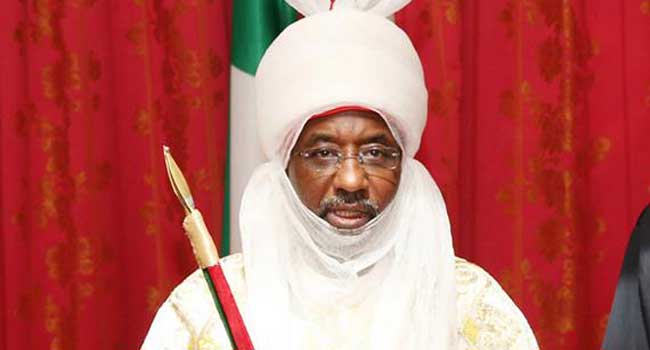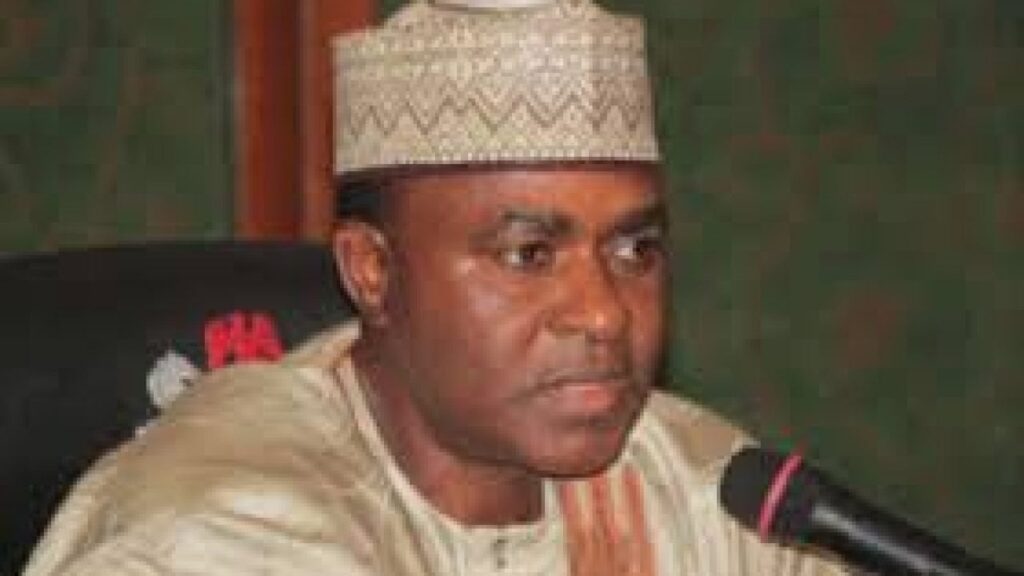Former Governor of Bauchi State, Isa Yuguda, Monday, spilled more fuel subsidy scam racketeered by the Nigerian National Petroleum Company (NNPC) in conjunction with marketers and other stakeholders in the crude oil sector.
The fuel otherwise known as Premium Motor Spirit (PMS) until its removal by President Bola Tinubu administration has been regarded as a scam by many Nigerians and experts.
Yuguda who also was former minister of state for transport, stated this when he appeared as a guest on Channels Television’s Sunrise Daily.
“I remember a friend of mine in the oil industry, who during a meeting of an economic think tank. He called the then president aside and said, ‘Mr President please stop this subsidy, we are tired of making money,’’ he recounted.
Yuguda, however, did not name the friend or the president involved.
His words, “I co-chaired the committee on fuel subsidy, which has the president as the chairman and everything about the subsidy regime and scam was discovered under my committee since then. Recommendations were made, but unfortunately, they were never implemented and it’s very sad.
“I’m sad to let Nigerians know that from what I saw, we came across situations where subsidies were claimed on pipelines that never existed. Those behind the subsidy scam will just claim that they pump excessive amounts of crude oil from Warri to Kaduna and just fill out papers and invoices and claim subsidy on it.
“In fact, there was an instance of a pipeline that was supposed to exist between Lagos and Warri, and tons and tons of money were collected on subsidies for the pipeline that never existed. This is Nigeria for you.
“We submitted a report and attempts were made to remove it but I’m telling you, it can be very frustrating to implement policies, especially when there is interest from cabals. That’s what is leading us to where we are today.
“The subsidy regime should have gone way back in 2012 and 2013, but the previous government didn’t have the political will to remove it.”
“I am sad to let Nigerians know what I saw; we came across situations where subsidy was claimed on pipelines that never existed,” Yuguda maintained.
The former minister further explained that “They (NNPC and Marketers) just claim that they have pumped X amount of either finished products or crude.
“Those that claim to pump the products and those that are in the subsidy scam, they just fill papers, invoices and they claim subsidy on it,” Yuguda explained.
When asked again if it was indeed the NNPC that was making these claims, Yuguda replied in the affirmative.
“Who else is doing it?” he rhetorically asked.
Buhari double speak on fuel subsidy as scam
Though in 2011 Muhammadu Buhari criticized former President Goodluck Jonathan’s proposal to end fuel subsidies, calling it a fraudulent policy, he plunged into the mess he repudiated.
He had vehemently contended that there was no fuel subsidy in an interview, claiming that the economic strategy had given the previous administration a way to grease the wheels of corruption.
If elected, he also pledged to end fuel subsidies and further lower the price of petrol or Premium Motor Spirit at the pump.
“Who is subsidising who?” he queried while explaining why subsidy payment is a fraud.
“If anybody told me about subsidy, he is a fraud. There is so much fraud I don’t want to talk about, but the day I have to talk about it, I will invite a petroleum economist to come and tell me who is subsidising Nigerians,” he fumed.
Buhari further argued how during his time as a petroleum minister, from 1976-78, there was no mention of subsidy payment.
However, under the watchful eyes of Buhari, N2.8 million ‘’disappeared’’ from the treasury when 60k exchanged for a Dollar.
“What I understand that Nigeria should charge Nigerians is the cost of one barrel at the wellhead and then the cost of transportation to the refinery, the cost of refining it and its cost at the pump.”
Based on his economics, he concluded: “If anybody says he is subsidising anything, he is a fraud.”
From 2015 to 2023, Buhari doubled as the Minister of Petroleum Resources, the National Assembly approved the request of the President to earmark N4 trillion for petrol subsidy in 2022.
With fuel subsidy, a fraction of the price that consumers are supposed to pay for the product is paid by the government so as to ease the price burden.
After hearing findings from the financial committees, the lower and upper legislative chambers supported the president’s request.
In 2021, petrol subsidy payments gulped N1.43 trillion.
The expected daily payment for fuel subsidy in Nigeria, according to finance minister Zainab Ahmed, is N18.39 billion.
She made this statement during a session of the House ad hoc committee, which is looking into the regime of petroleum subsidies from 2017 to 2021.

She said, “The total amount of subsidy per day is N18.397 billion per day,” she said. “So, if you are projecting for the full year, it would be N6.715 trillion. If you are projecting for half a year, it would be 50 percent of that.”
The minister claimed the Nigerian National Petroleum Company (NNPC) and the regulator’s information were used to compute the amount.
The data, according to her, indicated that the expected average daily truck out is 64.96 million litres of petroleum.
She added that independent oil marketers received a subsidy of N1.774 trillion over a four-year period.
Zanusi collaborates fuel subsidy as scam
Muhammadu Sanusi II, former Emir of Kano, saw that payment of fuel subsidy by the federal government as a “scam”, saying some people in power are making billions out of it.
Speaking on Arise Television, Sanusi said successive administrations continue with fuel subsidy payments despite damage to the nation’s revenue and economy.

The former Central Bank of Nigeria (CBN) argued that the economic reality of the country is a product of some “negative decisions” taken by successive administrations.
Sanusi said that the first problem of the country in terms of management of its petroleum resources is the assumption that Nigeria is an oil-rich country.
He further said that it does not make sense to think Nigerians need more cheap fuel when there are other basic things like healthcare, infrastructure, electricity and telecommunications.
“We’ve taken a number of negative decisions, and that has been the bane of successive administrations. The first problem, of course, is assuming that we are an oil-rich country.
“And this has always been the big joke for me. I remembered in 2011 when we were talking about the fuel subsidy debate when President Jonathan rightfully wanted to remove the fuel subsidy.
“I said to people we are producing two million barrels of crude oil for 160 million Nigerians, that is one barrel for 80 people. Saudi Arabia produces one barrel for three citizens. That is a rich country.
“You are producing one barrel for 80 and your share of the revenue of that barrel, maybe half, so you are producing one barrel for 160 people.
“These people (referring to Nigerians) need education, they need healthcare, they need infrastructure, they need electricity, they need telecommunications, they need agriculture and you decide that what they need more than anything else is cheap fuel. That does not make sense.”
He argued that successive administrations continue payment of fuel subsidies because some people in power are making billions of naira from the scheme.
He also alleged that most of the numbers from the country’s importation of petrol are “phantom”, stressing that “a lot of the petroleum subsidy that will say, it being paid is from phantom fuel that never came into this country”.
“The only reason it makes sense is that there are a number of people who control the levers of power, who are making billions and billions of dollars out of this scam that is called fuel subsidy.
“Otherwise, there is no reason why government after the government will continue, when the argument is clear that the damage to the economy is clear.
“We have this scheme called the subsidy, which is really a scam, and practically everything that comes in, goes right back out — to import petroleum products and pay subsidies on those products. I’m not saying subsidies, themselves, are bad but look at the numbers.”

